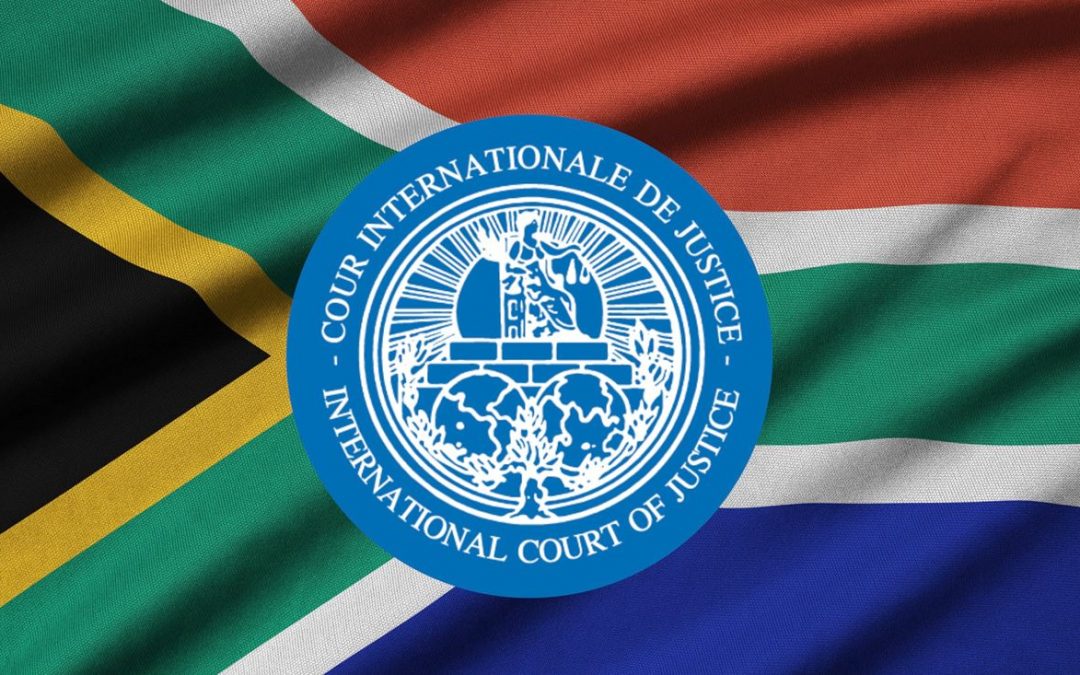The South African Zionist Federation (SAZF) denounces the South African government’s latest submission against Israel at the International Court of Justice (ICJ). This document, known as a memorial, attempts to bolster South Africa’s baseless genocide charges first lodged against Israel in December 2023. This latest legal manoeuvre not only distorts international law but also trivialises genuine cases of genocide throughout history.
Minister of International Relations and Cooperation Ronald Lamola’s recent claims about South Africa providing “forensic detail” about the charge in the legal papers cannot disguise the fundamental emptiness of these accusations.
The term genocide, as precisely defined under international law, refers to the systematic and deliberate destruction of a specific ethnic, national, or religious group. Israel’s defensive operations in Gaza, initiated only after Hamas’s brutal 7 October 2023 attack, bear no resemblance to this definition. This conflict began when Hamas violated an existing ceasefire, launching an invasion that massacred over 1,200 Israeli civilians and kidnapped 250 others, including children and the elderly.
The stark irony of South Africa’s accusations cannot be overlooked: Hamas, whose charter explicitly calls for Israel’s destruction “from the Jordan River to the Mediterranean Sea,” is the party advocating for genuine genocide. Israel, by contrast, is defending its 9 million citizens’ fundamental right to exist.
The humanitarian challenges in Gaza stem directly from Hamas’s deliberate strategic choices. The terrorist organisation has consistently embedded military infrastructure within civilian facilities including schools and hospitals in order to cause harm to their own civilian population. It uses civilian populations as human shields and diverts humanitarian aid for military purposes, while repeatedly rejecting opportunities to end the conflict by surrendering and releasing hostages.
Israel has demonstrated significant restraint in fighting an adversary that hides behind civilians, issuing advance evacuation warnings before military operations and facilitating humanitarian aid corridors. The nation continues to support essential medical services, including child vaccination programmes, and has established civilian safe zones despite Hamas’s ongoing attacks.
“This cynical abuse of international law dishonours real genocide victims throughout history,” states SAZF spokesperson Rolene Marks. “Any objective judicial review will vindicate Israel’s adherence to international law and expose these charges as politically motivated theatre.”
The South African government’s moral inconsistency is striking as it frequently makes alliances with rogue states Iran and Russia. Last week, President Cyril Ramaphosa described Russia as a “valuable ally,” while ignoring hundreds of thousands of Ukrainian casualties and failing to call for peace in Ukraine.
“This selective outrage damages South Africa’s international credibility and suggests these charges are driven by political ideology rather than humanitarian concern,” says Marks. “The pattern of aligning with authoritarian regimes while attacking the region’s only democracy reveals a deeply troubling diplomatic agenda.”
“South Africa remains conspicuously silent on humanitarian catastrophes on the continent, including in Sudan’s Darfur region, where civil war is leading to famine,” Marks continues. “The government maintains relationships with state sponsors of terrorism like Iran while undermining crucial economic partnerships with Western democracies such as the United States, one of our largest trading partners.”
The SAZF notes that the ANC no longer has unfettered control over South Africa’s foreign policy. Other parties in the Government of National Unity have both the power and responsibility to help reshape our nation’s diplomatic direction. We therefore urge all South African political parties to work towards restoring South Africa’s standing as a credible international actor—one that aligns with Western democratic values rather than rogue states and terrorist organisations. South Africa’s future prosperity depends on strong partnerships with democratic nations, not on ideologically-driven support for authoritarian regimes and their proxies.


